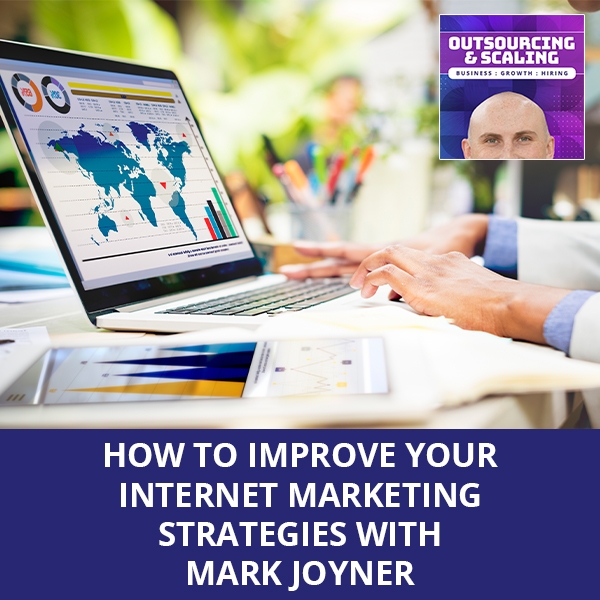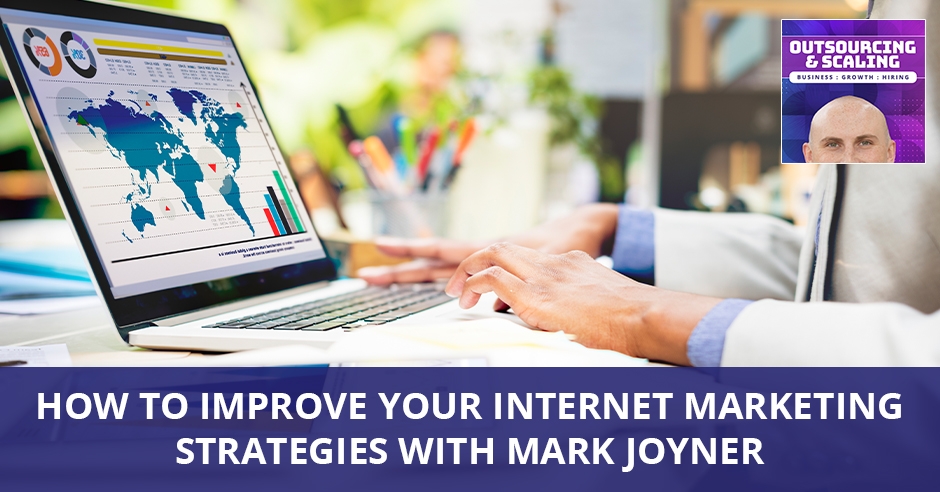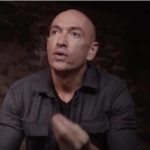


—
Listen to the podcast here:
[smart_track_player url=”https://www.podetize.com/statsapi/www.podetize.com/wp-content/uploads/fileuploads/11-5b145ef137b51b3d1af0633e9305c43d/07/2019/8de3060a21cc6256ebbf3f51885728df.mp3″ title=”How To Improve Your Internet Marketing Strategies with Mark Joyner” artist=”Nathan Hirsch” image=”https://freeup.net/wp-content/uploads/2019/04/OAS.png”]
Download the audio file here.
How To Improve Your Internet Marketing Strategies with Mark Joyner
I’m here with Mark Joyner. Mark, how are you doing?
I’m doing great. How are you?
I’m doing great. It’s an honor to interview the godfather of internet marketing.
Thanks for having me. I appreciate it.
I want to talk about that and what you’re up to now, but let’s take a gigantic step back. When you were growing up, what kind of kid were you? Were you a straight-A student? Were you a rebel? Walk us through that a little bit.
I had a rather unconventional childhood. I had parents who did not force me to go to school. I was not homeschooled either. I was left to my own devices. However, I had an insatiable curiosity so I chose to educate myself. It’s because I was not forced to go to school, I did not. When I got to the age where I could go to a university, I decided, “Maybe I should go.” I tested out of my high school diploma. I took a college entrance exam. I got in and then quit that as well. I then decided to join the military.
What was your first real entrepreneurial endeavor?

I had lots of minor ones when I was a young man playing around with little tiny things like paper routes and selling various things. When I was a young punk rock kid, we were selling T-shirts for the band. We sold different bands’ T-shirts and whatnot. That was okay. That was probably my first more serious attempt. I got really serious about it while I was in the military. You’re too young to know this, but before the internet got big, there’s a system we called BBS. You dial into your computer and connect with those guys. The cool, interesting thing about that was BBSs would share information. It’s one person at a time connecting to one computer. The information would spread slowly, but it would spread across bulletin boards.
In my military career, the first job I had was in the intelligence community. Part of that involved getting free language training from the US military. Taking a little bit of inspiration from the information marketers that I saw, I created a report called How to Get Free Language Training from the Government. I would post up ads for that on bulletin board systems and tell people to send me a self-addressed stamped envelope because we didn’t have eCommerce back then at all. We didn’t have any secure transactions so you can send credit cards and whatnot. People would send me a self-addressed stamped envelope with a check. I would send them off the report, explaining to them, “There’s this program. If you join the military, you get to train up at a language. It’s free.” That was my first serious endeavor. Getting that first check in the mail in my barracks male office was quite cool.
Was it just you or did you hire people to grow it?
It was just me for the longest time. I was running it all by myself from my barracks.
The internet comes about. Walk us through that. What was the initial reaction? How did you take advantage of it in its early days?
In the early ‘90s, there wasn’t any such thing as online marketing. I had a headstart there doing the stuff on bulletin board systems. I hadn’t read any formal marketing books. I hadn’t learned anything from the direct marketers. Since then, I became friends with a lot of direct marketing greats throughout history. They trained me. Back then, I said, “I’ve got to figure things out.” A martial arts instructor who once told me, “Everything that you learned in martial arts can be applied metaphorically to anything in life.” I thought, “Let’s see whether or not that applies.” I started taking what I had learned in my study through martial arts and from my experience in the military. I did start doing a deep dive in the military tactics and strategy, both the eastern and the western styles. I also took it upon myself to educate myself in psychology. That’s through independent study. That’s what I got my degree in.
When I jumped on, I started formulating a playbook for how to do things. At some point, people were noticing, “You’re all over the place. How are you doing this?” I started calling myself an internet marketing guru. I was probably the first guy to do that back in the old days. It’s through dumb luck and happenstance. It just turned out that I was one of the first guys online to start having some commercial success. People started coming to me asking questions. After a while, I shifted my business model over to that. I was like, “People want to know this stuff.” I turned that into what the job was. We’d have a lot of other startups around that time. People started knowing me as the internet marketing guy back then.
Humans tend to comply with something more likely if you get them to comply with something small first.
Was there an element of trial and error there? Did you have a plan and you were sure of it and you were going for it? Talk to me about that process of figuring out what works and what didn’t work.
There are lots of trial and error. For any entrepreneurs reading, if you’re not ready for that, you’re in the wrong job. You’ve got to be ready for that as an entrepreneur. For example, one thing that a lot of entrepreneurs suffer from that you guys help people with greatly is hiring people. Often, we have this, “I’m going to hire my family and my friends.” That does not tend to work out very well at all. We get ourselves embroiled and entangled in partnerships that are not very effective. Most of the time, marketing doesn’t work. People have to understand. Even the most seasoned professional marketers, the vast majority of them have more misses than hits. You’ve got to be willing to keep swinging. It’s like a batting average for a guy in baseball.
An amazingly good batting average would be around 300. I don’t watch baseball. I don’t know that much about it. I know that through hearing about it. A good batting average for marketers is far lower. For me, it’s especially in the beginning because I didn’t know exactly what I was doing with direct marketing at all. I had to guess. However, once I started educating myself in the ways of direct marketing, those hits became a lot more frequent. I’m at a point now where I tend to get a pretty decent result. I don’t get demoralized if it doesn’t. My philosophy is like, “You throw it against the wall of the university and you see what sticks.” Like a scientist, you observe the results. You continue to refine and improve your process over time.
Can you give me an example of how you use human psychology to make you a better marketer?
There are so many. If you’re not using human psychology as a marketer, you’re missing the whole point. A good 90% of marketing is human psychology. It’s not a scientific number but a general round guess. There are other parts of marketing incidentally. Statistical analysis, for example, is one thing that most people miss completely and is widely misunderstood by most people who do any marketing at all. They don’t understand the relationship between how much data you collect and how accurate it is. They don’t understand that the ways of isolating variables correctly, that scientific part of it, is very important, especially when you get very good. The human psychology is the very root foundation.
A lot of people credit me with pioneering among other things, viral marketing. One of the things that we ran in the early days of the internet is we had this little thing that we ran people through called the five trials. You’d have to hunt around the web and find certain things. It was a blatant traffic play. We would get people to go to a website and hunt for something on a page. Once they found it, they’d have that. As they were hunting for it, they’re reading advertising. The human psychology behind that is we could analyze it through many lenses. I’ll give you two lenses through which we can look at this. One is the military. I’ll give you a psychological lens as well.
There are a few different phenomena at play in the psychological lens. One of these things is the notion of the foot in the door phenomenon. Old door-to-door vacuum cleaner salesmen would find that if they would knock on the door and say, “Do you want to buy my vacuum?” the response that they would usually get would be a door in the face. However, there’s a very clever vacuum cleaner salesman. He came up with this notion of knocking on the door and asking the lady of the house, which, in this day and age, is not the right way to phrase it. Back when we were young, it was the world we lived in. The lady of the house would answer the door and he would ask, “Would you mind if I came in and vacuum your floor?” Often, the lady of the house would say, “I don’t mind at all because I’m very busy. I’ve got five kids in my arms. I don’t have time to vacuum the floor. Please, come inside.” As he was vacuuming the floor, he would give them a pitch on the virtues of the sales or the vacuum cleaner that he sells. That is the foot in the door phenomenon. It came from studying vacuum cleaner salesmen.

Humans tend to comply with something more likely if you get them to comply with something small first. You get your foot in the door before you do the big ask. If you start with the big ask, the response tends to go down. In the five trials, we were getting our foot in the door in the website by telling them to go find something for their financial gain. It’s like, “If you could solve the five trials, you’re going to get this free gift.” Another lens through which we can look at this, which is quite interesting as well, gets into metaphorical applications of military science and business in general. A lot of people are surprised when business curriculums include students to study The Art of War. I am not surprised at all because I see grand applications of The Art of War in pretty much everything. Once your eyes are opened to this notion, you can’t unsee it. I’ll give you an example from The Art of War about how this applies. In The Art of War, Sun Tzu talks about eight different types of ground upon which a battle could occur. Two that are quite interesting from a marketing lens are what he calls heavy ground and deadly ground. The deadly ground is the notion where you have two military forces meet on the ground and there’s no escape route. They have one choice, to fight or die. Do you have military experience?
No.
Intuitively, if I were to ask you if two forces were to meet on the ground and they have no escape route, who do you think is going to win that battle?
It’s whoever has the most training.
It’s a very good answer. We would say the stronger force. It would be a combination of training, the strength of your weapons and lots of things like that. You have a good idea. I would call that the worst possible way to fight. In Sun Tzu’s lens of military strategy, he would say that combat is a failure of leadership. The highest art of war is to win without fighting. There are a lot of people who are not familiar with the way the military works and all of that. They’re not aware of that. Most of the battles that are being fought around the world are fought in one without fighting. In this era of Russian bots, fake news and things like that, we think that these are our new inventions. They are not, in any way, shape or form. Propaganda has existed for thousands of years. We’ve all been doing it to each other for the longest time. This is one of the ways you win without fighting. You propagandize the enemy or your own people for various ends. This will allow you to achieve military objectives. That is happening all day long every day. Here’s another way to win that will give you an advantage, especially if you are in an asymmetric disadvantage.
What that means is if you are a weaker force fighting a stronger force, you don’t want to fight a deadly ground battle with these guys. This may seem like it’s quite tangential to the topic, but it’s going to loop back around here in a way that will give you a pretty profound a-ha. The other ground, the heavy ground, is when you get deep into the enemy territory and you launch a surprise attack from the inside. That gives a weaker force a tremendous advantage. I would ask you if you were to look metaphorically at the relationship between a business and a consumer as a battle. I use this metaphorically. I don’t mean that your customer is your enemy. Your customer is somebody you should be serving. I take that relationship very seriously. However, we’re all combating each other all the time on some level. We do have a bit of a battle with our customer. We have to convince them that our product and service is going to serve them well. Who do you think has the asymmetric advantage between a customer and a business?
It’s the customer, to begin with.
Propaganda is one of the ways you win without fighting.
You got it. It’s because the customer can say no so easily. That’s it. It’s no skin off their nose. You must fight it as an asymmetric war when you are battling the customer. How do we apply deadly ground versus heavy ground in that combat with the customer? The deadly ground battle would be the door-to-door salesman knocking on the door saying, “Would you like to buy my vacuum cleaner?” The heavy ground battle would be getting the foot in the door. Here’s another way that we can apply this metaphorically. I love metaphors because they can be so far-reaching in their implications and could open up your mind to some of the different creative possibilities. This is one of the reasons why I was able to do the stuff that I was able to do because I was thinking metaphorically, it opened my mind up to different possibilities that other people simply could not see. I got into doing stuff that I learned later after I started studying direct marketing more formally, fortunately, from a lot of the direct marketing greats, which is now referred to as advertorial.
If we take this in modern parlance, you don’t see an advertorial as often. What you do see are informational blog posts. Those are often advertising disguised as informational blog posts. If you’re doing it well, the information in there is going to serve the customer well. A lot of people feel like, “Isn’t that a little bit dishonest?” There’s room for a little bit of kayfabe in marketing. The lens through which we have to look at this is, “Are you treating them well throughout the whole process?” If the information that you give them is something that’s genuinely going to have an impact on their life in a positive way, it’s completely okay to disguise your marketing as information because you’re serving the customer at every step.
I’ll even go to a different level. There’s this blog I follow that is shutting down and that I’m upset about. One of the reasons they’re shutting down is because they put out the content but they didn’t have the business model behind it. If you like the free content and you don’t have the business and the selling behind it, there’s no more free content anyway.
A lot of guys walk into the internet with this very ill-conceived notion that, “All I’ve got to do is create content. Content is king.” That’s it. It’s like, “Sorry, kid. It’s not that simple.” It’s heartbreaking for a lot of people who get into it with those ill-conceived notions.
You scan a lot of businesses. I’m assuming you’ve hired a lot of people. You haven’t just run these businesses by yourself. Let’s talk about hiring. Is there any hiring mistake that stands out to you or any bad hire?
After many hires across so many different businesses, one surprising thing I found was there is very little correlation between the level of education and effectiveness in the people that I hire. There was often an inverse relationship. Some of the absolute worst hires I ever had have been the most highly educated. A lot of people are going to think that’s counter-intuitive and it doesn’t make sense, but it’s not at all. Are you familiar with the Dunning–Kruger effect?
I’m not.

The Dunning–Kruger effect is this interesting psychological phenomenon whereby people have an unjustifiable notion of their own intelligence. The Dunning–Kruger effect is quite common in the highly educated because they spend all of this time in an academic world. The academic world is not preparing you for the real world. It’s preparing you to succeed in academia. It’s preparing you to get a better score on your thesis, on your test or whatever. There are lots of gamesmanship in it. A lot of these people come out and are ill-prepared. There’s a similar phenomenon in the US military. I was fortunate that I started out as an enlisted man before I became an officer. I was able to see it through the enlisted man’s eyes. A lot of officers come out of university and don’t have the respect of their enlisted men because they haven’t been in the stuff. This was why, in the Vietnam War, there were a lot of officers who were fragged by their soldiers. They were killed by their own soldiers because the soldiers knew, “This guy is an idiot. He’s going to get us all killed.” The Dunning-Kruger effect is in full effect with a lot of these guys who come out of university, especially the guys with high-level degrees, especially with MBAs. Without naming any individual ones, that is probably the most surprising thing that I found and some of the biggest disasters I’ve had.
Are there any hiring tips, anything that’s worked well for you over the years?
There are several things. This ties in nicely to what you guys do. What I’m about to say is a very good sales pitch for what you guys do. The thing that has been most important for us is not to hire emotionally. Don’t hire people that are friends and family of you or even of your other contractors. In the Philippines, for example, it’s quite common in their culture for them to want to offer jobs to their family. We have to be very careful and sensitive about how we phrase this in this day and age. Some people might say, “You’re making a racist statement.” It’s like, “Not at all.” It’s just an observation of what they do in their culture. I don’t think any Filipino would even disagree with that. They’re like, “We’d like to offer jobs to our family.” It’s often a very big mistake because it creates connections there. There’s an emotional bond and there’s so much drama. If you do discover, “This person isn’t the right person,” you have to pull that person away. The original person who brought them in is feeling a little bit angry about it as well.
This is something that anybody who has experienced that would nod their head with. It’s a very common experience. What we do is we try to remove all of that emotional element out of it, first and foremost. We put a process in place whereby we have levels of vetting. The first thing that we do is we allow people to self-select. We tell people, “If you want to work with us, you need to submit your answers to a quiz that we send you.” What that does is it filters out people who aren’t serious about working with you. The guy who’s blasting out résumés everywhere is not going to do that. We get to look at the results of that and get a bit of a glimpse into how that person is. We will put them through degrees of trial where, at first, we’ll ask them to take another test maybe. We get up to a point where it culminates in a three-person interview. After that, they’re still not hired. We’ll bring them in for a trial period and see how they are.
A lot of people can get through all those trials. They can talk a good talk and put on a good face, but when it comes to showing up that day and working, it’s a whole different story. We like to experience what it is like working with them to see if they’re going to fit in our culture. Even still, what’s astonishing is that even though what we do is very elaborate, and a very few companies are as rigorous as we are in our hiring, you will still get mis-hires from time-to-time. Even with some people, you don’t know their true nature until you’ve worked with them for a while. There are sociopaths on this planet, for example. They can put on a good face for a long time and keep you strung along for quite a while as well. You want to do your best to try to eliminate those things as much as you can.
I always say that no one has a 100% hiring record. Your goal is to get as close as possible. It’s funny that you said the family thing. One of the videos we have on YouTube is this guy Norman who’s a good client of FreeeUp. Before FreeeUp, he hired a family. He hired one person. It eventually turned into the entire family working for him. One day, he pissed off someone in the family. I don’t know exactly what happened. The whole family got up and left him. He called me up one night in a panic. He lost his entire staff. We had to replace them that week. It ended up working out well and he’s happy now, but that was a pretty devastating time. It’s incredibly risky.
Was the family based in the Philippines?
Your customer is somebody you should be serving.
Yeah.
In this day and age of us wanting to be sensitive with each other, which is well-intentioned on some levels, it’s also quite misguided. We have gelded ourselves from making important observations about the world. We have to pussyfoot around this discussion about cultures. Cultures are different. It varies radically from country to country. I’m sure you have found this, hiring across different cultures. There are cultural tendencies. One would be well-advised to make themselves aware of those cultural tendencies, not to pigeonhole individuals because of what we believe is true about individual cultures. We’re crazy if we don’t make those observations.
Talk to me about productivity. That’s a big part of your life, maximizing everything when it comes to your business and your life. I see you working out every morning. I’ve watched some of your Facebook videos. Talk to me about simplifying your life and making it as productive and fulfilling as possible.
Simpleology is a platform. That’s the entire reason for existence. It’s a full-spectrum approach to that, but it’s a little bit deeper. I’ll go into that briefly. On one level, we’re a productivity platform. On another level, we’re much different from that. We address something that’s very different. That’s what I call The Complexity Gap. That’s the gap between how much information you can process in your conscious memory and how much information is dumped into the data stream on a day-to-day basis. In 2005, Eric Schmidt made the observation that Google was observing an addition of about five exabytes of data every day. What a lot of people don’t understand is that it is an exponential trend. If anybody here has been following Moore’s law or Kurzweil’s singularity theory and all of that, these exponential trends are observable across every industry and across many different phenomena.
One of those exponential trends is the increase in information. We see an exponential increase in the amount of information that is dumped into the input stream every day. This gap between how much information you can process consciously and how much information is available is a very serious issue. As species, we need to be cognizant of this. This is one of the reasons why so many people are not effective with their productivity. They don’t have a healthy way of navigating it. In essence, that’s what Simpleology is all about. It’s giving you a way of navigating that.
Why is that relevant to your question? If you’re going to be productive at all, if you don’t solve The Complexity Gap and if you don’t have a way of navigating intelligently, you’re in deep trouble. One of the first things that we do is we get you clear on what it is that you’re trying to accomplish. We help you make decisions. In the universe of possibilities of things that you can do, which ones do you do? It’s not an easy question. We guide people through it. For example, there are things that you want to do but you’re not going to do it yourself. You’re going to delegate it. It’s something that should be on a schedule, not on a to-do list. People have these to-do lists. To-do lists are probably the most toxic invention ever. On the same list, you’ve got take out the trash and solve world peace. You’re never going to complete the whole list. It’s because of that, there is this feeling of constant incompleteness that people have.
That sense of dissatisfaction turns into dread, doom and despair. This is why people end up feeling overwhelmed. We give people processes whereby they could sort and sift through these things. One of the interesting lenses that we use is neologism. That’s part of Simpleology. It’s called HIME. It’s High Impact, Minimal Effort. If you imagine the universe of possibilities, why would you not spend your time on things that are High Impact, Minimal Effort? Compare this to High Impact, High Effort or Low Impact, High Effort, the worst possible option there is. Low Impact, Low Effort, which is what most people are spending their time on Facebook, YouTube or whatever stuff that maybe is pushing the needle forward a little bit but not very effectively. If you can do stuff that’s high impact and low effort, why would you not do that? HIME, High Impact, Minimal Effort is a mathematical formula. What we do is we give people a way of calculating that. We have you rate things on impact and on ease. You give a score between one and ten of impact, one being not very impactful and ten being very impactful or very effective.

On ease, one would be something very hard, not very easy. Ten would be something super easy to do. You multiply those numbers together. We sort through that list. Whatever has the highest HIME score tends to be the most intelligent thing to work on next. It’s not a foolproof system because you can misrate things. You can misestimate things. You have to guess, but it tends to get you right in the ballpark of where you need to go. That’s the first thing that I would recommend to people. The next thing and this is also something we manage inside the software, is getting your baseline habit patterns together. For example, usually at 6:00 AM, I’m outside and doing an exercise routine. This is my daily warm up. I work out twice a day, a very light routine in the morning and a formal workout in the afternoon. I work out lightly several times throughout the day. I get up from my chair every 30 minutes. If I’m standing, I get away from the standing desk. I switch back and forth between sitting and standing.
I have the zero-gravity chair called the Perfect Chair. It’s one of the only chairs that is workable. Most chairs are quite damaging to the body. I’ll rotate between that and standing up. Every 30 minutes, I will move my body. I’ll do something to stimulate my body, to take away any of the impacts of standing too long or sitting too long. Normally at 6:00 AM, I’m up. I’m out doing my animal flows. I time this based on the sunrise. You have to find out what your sunrise time is. This is going to sound very unnecessary to a lot of people, but it’s had a huge impact on me. There’s a tremendous amount of science to support the notion. I find out what time the sun rises. About twenty minutes before the sun rises, I’ll do my animal flows. As I watch the sunrise, I will do a couple of breathing practices. I do a Pranayama practice from yoga and also Wim Hof breathing.
There is a fair bit of scientific evidence to support the notion that seeing the sunrise will stimulate melatonin and dopamine production. You have a greater storehouse of melatonin when you need to go to sleep. I’ve had trouble going to sleep for the longest time because I have quite an active mind. Ever since I started that routine, my sleep has improved dramatically. Things like this may seem extreme to people who are not engaged in biohacking or not interested in extreme productivity. You will find over time that the habit patterns that you establish are going to determine your effectiveness in everything. You get to a point where you realize, “If I don’t have this dialed in, I’m going to be performing at a much lower degree.” You’re a much younger man. I am 50 years old. I have to be quite cautious about how I do this. Are you in your twenties?
I’m 30.
You probably got a few years before you’ve got to start taking this stuff seriously. In your twenties and early 30s, you’re bulletproof. You can get away with a lot more. As you get older, you’re going to find that you need to start taking care of your body a little bit better. I would advise anybody in your age range to take this seriously now for several reasons. One is you’re going to get better performance out of yourself. If you start watching your diet and how you’re taking care of your body, you will outperform guys in your age range. Two is, sometimes, the importance of these interventions is more and more obvious over time. Sometimes it surprises you. You don’t want to wake up one morning and be surprised with a heart attack. I know guys who’ve had heart attacks in their 20s and 30s because they weren’t taking care of themselves correctly. You look like you’re quite a fit guy. I’m probably preaching with converted here, but I know that the vast majority of the folks reading are probably not taking it too seriously. They need to.
One of the best entrepreneurial decisions I made was to get a personal trainer a bunch of years ago. It got me on the right track. He ended up moving away, which was fine. Now I go to the gym religiously. I was in good shape in high school. In college, you let it get away from you a little bit. Once I started focusing on business and getting back in shape, it changed everything. I’m fulfilling and full of energy at all times. It wasn’t that way when I first graduated. Mark, this has been awesome. I’ve learned a ton. I think our audience has as well. Where can people find out more about you? What are you most excited about for the rest of the year?
Simpleology.com is where folks can go. What has me most excited is this notion of The Complexity Gap. It’s becoming more and more known by people. One of the curses of my life has been heading up a lot of the trends. I started the first eBook publishing company and the first online ad-tracking company. I invented the tracking pixel and a lot of this stuff. I got roasted in the tech press for a lot of these things. There were a lot of people out there who were giving me a hard time for eBooks, for example. I’ve been talking about this Complexity Gap notion for a long time. A lot of people were like, “This is not as big of a deal as you think it is.” Now, people are starting to become aware. We don’t know whether or not the news that we’re watching is true, whether it comes from one part of the political spectrum or the other. We don’t know whether or not the news sources we’re talking to are telling us the truth. People are becoming more and more aware of that. It’s exciting for me because it’s great for us as a company. It’s also scary because it is indeed a serious problem for humanity. I’m very excited about solving that for people. It’s quite an important thing to take on.
Thank you so much for being here.
You’re very welcome.
Important Links:
About Mark Joyner
 Mark Joyner is the Founder of 30+ startups who now serves as the Founder and CEO of Simpleology – a web app that doubles your free time and cuts your workload in half by simplifying your life: www.simpleology.com
Mark Joyner is the Founder of 30+ startups who now serves as the Founder and CEO of Simpleology – a web app that doubles your free time and cuts your workload in half by simplifying your life: www.simpleology.com
Mark is often referred to as the “godfather of Internet marketing” for his pioneering role in the early days of online marketing. Among other things, he started the first ebook publishing company, the first online ad tracking company, the second PPC search engine (while the Google boys were still in college), invented the tracking pixel … and so on. One of Mark’s websites, Startblaze, shot to #36 globally within 6 weeks of launching – on a ZERO DOLLAR AD BUDGET. Mark is the author of over a dozen books in print in 25 languages, 4 of which were #1 bestsellers. Mark is a former US Army Officer and a Cold War veteran of military intelligence. He has been awarded for his military service by the NSA, the Defense Language Institute, the US Army, the Republic of Korea Army, the Korean Consulate General, and the President of the United States.
On a personal note, Mark is now a health and fitness buff with 8% body fat who was once 60 pounds overweight. He trains in MMA, gymnastics, and calisthenics. He ran his first half-marathon at age 40 through the streets of Manhattan – barefoot.
